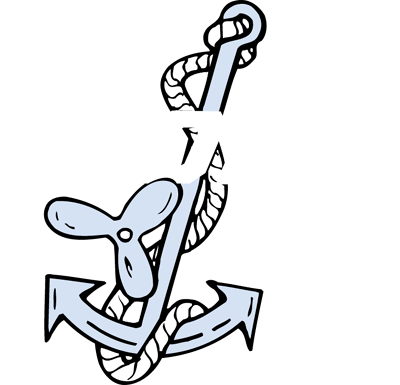Two Month Jail Sentence For Falsifying License Application
On May 5 2008, a merchant mariner from Panama City, Florida was sentenced by a United States District Judge to two months in jail, followed by 60 days in a halfway house, then two years of supervised release, for falsely claiming that he had never been convicted of a crime on an application for a merchant mariner's license submitted to the United States Coast Guard. The application had been filed with the Coast Guard in January 2001. The mariner had been convicted of the offense of False Statement to a United States Agency in March 2004.
It is reported that this case marks the first criminal conviction of a mariner identified through the Coast Guard's nationwide initiative known as "Operation Drydock". That program was originally conceived in December 2002 as a counterterrorism investigation tool, supposedly for the purpose of identifying loopholes or weaknesses in the Coast Guard's merchant mariner credentialing process. Under this program, the Coast Guard began working with the FBI, the National Joint Terrorism Task Force (NJTTF), and other law enforcement agencies, to compare the names of over 220,000 credentialed mariners with names in numerous law enforcement conviction records around the nation. The mariner who was convicted in 2004 and sentenced on May 5, 2008 had no association with terrorism. Instead, he got caught in the Coast Guard's net by his own undisclosed prior criminal (burglary) and drug (paraphernalia possession and use) convictions.
Comment And Assessment
Because license applications must be signed "under the pains and penalties of perjury", willful or intentional mis-statements can be considered to be perjury. In the past, we have found that many such omissions were understandable or explainable. Many often related to, for example, a history of disorderly behavior in the mariner's youth, which stopped later in life when the mariner got a license, got a job, settled down and became more responsible. Particularly in cases in which there may have been multiple convictions close together in time, and where they had happened many years ago, it was easy to overlook or to forget one or more of them. Also, in cases in which the earlier disorderly conduct later stopped, and the mariner was clearly reformed or rehabilitated, the Coast Guard was often willing to overlook such an omission as understandable under such or similar circumstances, provided always that the mariner could prove with his or her court documents complete satisfaction of whatever sanction the court imposed.
Whether this case signals an end to such prior thinking is not clear; what is clear, however, is that there may be a very severe sanction for overlooking or omitting the disclosure of a criminal or drug use conviction from a mariner's license application. Previously, we advised mariners that such an omission might, in theory, lead to a misconduct claim against him or her and therefore exposure to an additional and independent basis for suspension or revocation of the mariner's license. MOPS attorneys who may be called upon to advise mariners in this situation should know that the stakes may now be even higher than that, and they should advise the mariner accordingly.
